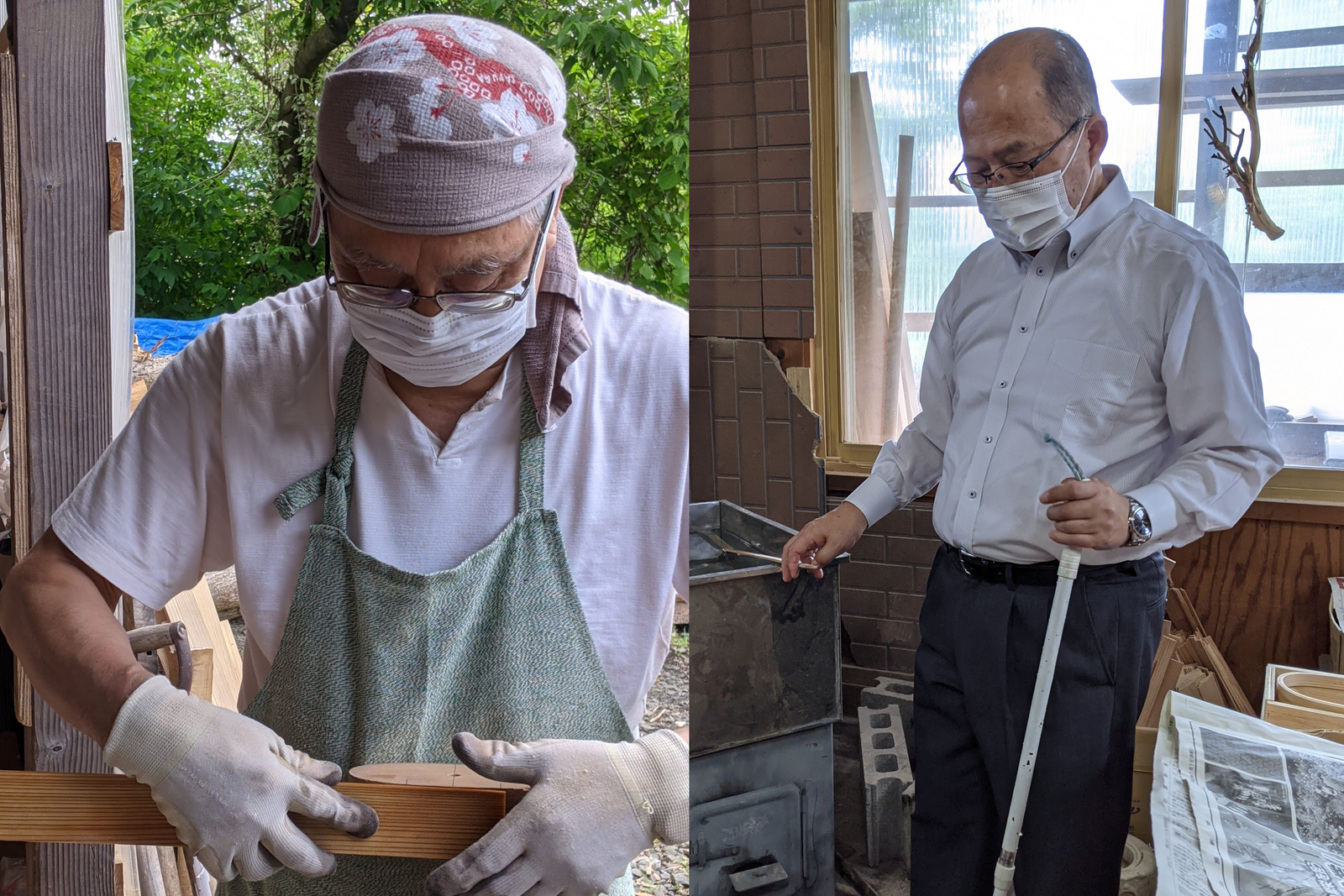Meet the makers behind Ryobi-an magewappa bento boxes

Today we have the pleasure of introducing you to Mr. Ishikura and Mr. Narita, the founders of Ryoubi-an Akita cedar handicrafts.

A Little History
The magewappa craft can be traced back 400 years to the Edo period, a very important time that heavily influenced the emergence of many Japanese handicrafts. Marked by the unification of Japan and the subsequent end of clashes between clans, the samurai were left with a lot more time on their hands. Consequentially, they were encouraged to pick up a secondary occupation by their local Lords. In Odate, Akita Prefecture, which has an abundance of Akita cedar trees in its mountains, they turned to the magewappa craft.

Mr. Yoshihiko Ishikura's Story
Mr. Yoshihiko Ishikura has extensive experience in the world of magewappa and made it his life's work. However, getting into the industry was actually just the luck of the draw. Originally, he was your typical salaryman doing a job which required frequent relocation. Eventually, this pushed him to search for new career opportunities in order to provide a more stable lifestyle for his family. That opportunity presented itself through a magewappa company, which he dedicated over 30 years of his career to. What started off as a mere job, became his passion. When he retired, he realized he still had a strong desire to continue being involved in the world of magewappa, only this time, he wanted to be actively involved and take on the challenge of creating something new. This is when his partnership with co-founder and traditional craftsman, Mr. Toshimi Narita, was born.

Mr. Toshimi Narita's Story
Mr. Toshimi Narita, an officially certified Traditional Odate Magewappa Craftsman, also dedicated his life to the craft. He also plans to leave this world through his craft, as his goal for his final piece is his own urn made out of magewappa. Mr. Narita worked for a large magewappa studio until he turned fifty when he would abruptly quit. The thought of being stuck in a job where he felt unfulfilled until his sixties pushed him into action. Instead of senselessly mass producing items, Mr. Narita wanted to create fun and unique items that he actually liked and enjoyed making. He thought, if he was going to do something new, he had to do it now. He was seeking something that large companies couldn't do: bringing to life completely new items by challenging one's creativity. He also desperately wanted to escape the monotonous lifestyle of constantly doing the same thing everyday. Moreover, he wanted to discover new ways to approach the craft and figuring out on what works and doesn't work on his own. This is something no artisan can be taught and can only be discovered through experience.

Creating Ryobi-an
In December of 2017, Mr. Ishikura and Mr. Narita's created Ryobi-an. Thrust into motion by their fiery passion and determination to innovate the magewappa craft, all the while protecting its centuries-old traditions and techniques, they embarked on the challenging journey of creating brand-new, never before-seen magewappa items. Not only by mixing "old" and "traditional" with "new" and "modern" but also with the blending of Japanese styles with Western styles, Ryobi-an is coming up with designs that can enrich anyone's lifestyle. Some of their contemporary creations include bread cases, wine coolers, and cake domes, on top of many other custom made original orders, such as Rilakkuma bento boxes. Finally no day is the same and Mr. Ishikura and Mr. Narita can find fulfilled with their daily activities, following their passion.





